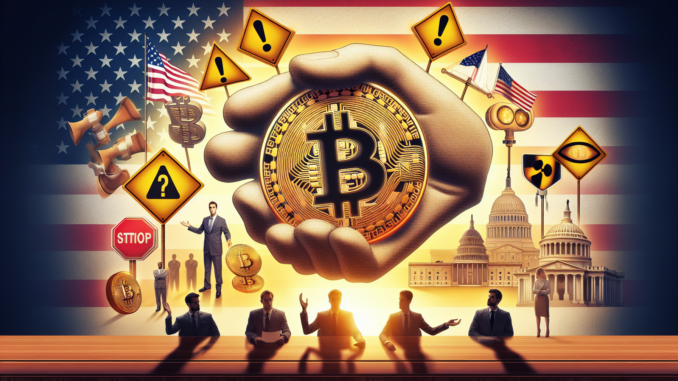
Donald Trump’s recent proposal to build a Bitcoin reserve is causing unrest in the crypto community and raising numerous questions. The plan, which is receiving media attention, is sharply criticized by various experts. A leading critic of this proposal is former U.S. Treasury Secretary Larry Summers, who calls the approach “crazy.”
Background of the Discussion
Bitcoin and other cryptocurrencies have become a regular part of financial markets since their inception. Under Donald Trump’s administration, however, there was a rather mixed attitude toward digital currencies. In the past, Trump himself was rather critical of Bitcoin, even calling it a “fraud.” Nevertheless, he seems to have changed his stance now, as he pursues a plan to create a national Bitcoin reserve.
The Main Point of the Proposal
According to the plan presented by Trump and some of his supporters, the U.S. is to establish a national Bitcoin reserve. The aim is to strengthen the economic independence and security of the nation. The idea behind it: should the U.S. dollar lose ground, a Bitcoin reserve could serve as a stabilizing force. Yet this very point is met with incomprehension by experts.
Critical Voices and Their Concerns
Larry Summers, the former U.S. Treasury Secretary, expressed clear opposition to Trump’s venture. He argued that the volatility of Bitcoin and the lack of regulatory control make the creation of a national reserve risky and irresponsible. Other experts in the finance and crypto sectors also lack confidence in the stability and reliability of Bitcoin as a national reserve.
The criticisms are multifaceted. A common concern is the inherent volatility of cryptocurrencies. Massive price fluctuations could potentially have dramatic impacts on the national economy if Bitcoin were used as a base reserve. From an economic perspective, the creation of a stabilization mechanism is considered necessary before Bitcoin can be used in such strategies.
Implications for the Crypto Market
The proposal has the potential to have major impacts on the crypto markets. On one hand, such a measure could increase the legitimacy and acceptance of Bitcoin at an institutional level, possibly leading to a price increase. On the other hand, the uncertainties surrounding such massive government interventions in the crypto market could lead to volatility and market skepticism.
For many investors, the question remains whether the benefits outweigh the risks. If the U.S. government were to actually use Bitcoin as part of its national reserve, it could set a precedent that motivates other nations to also invest in cryptocurrencies – accompanied by both risks and opportunities.
Conclusion: An Uncertain Future
The proposal to create a national Bitcoin reserve under the potential presidency of Donald Trump remains a controversial topic. The risks currently seem to outweigh the potential benefits, as underscored by the criticisms of experts like Larry Summers. Whether the plan will ultimately be implemented remains uncertain, but it has already sparked an extensive debate about the role and future of cryptocurrencies in the global financial landscape.
Overall, market participants are advised to follow developments closely and prepare for all eventualities. The dynamics of cryptocurrencies and their integration into the traditional financial world are at a crossroads and could undergo significant changes in the coming years.
Leave a Reply